Perspective and challenges for Vietnam’s Halal products
Vietnam is poised to capitalize on the burgeoning global Halal market but stringent certification requirements, lack of awareness, and fierce competition count among the challenges.
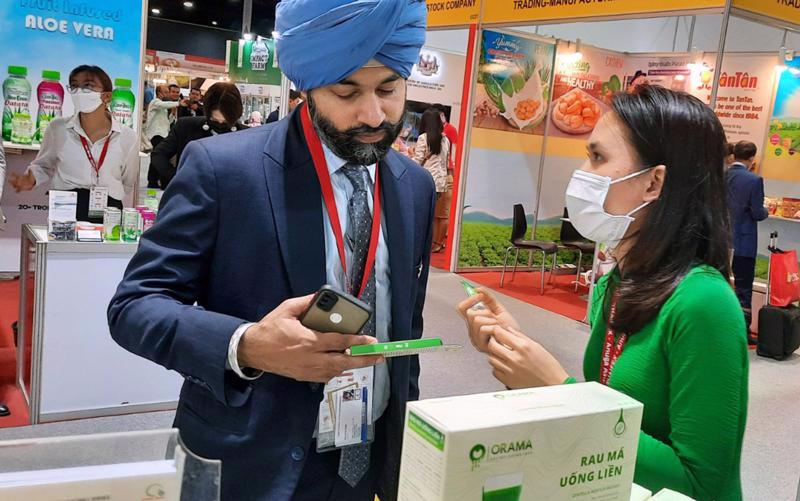
Mr. Akram Waqas, a devout Muslim from Pakistan, has found a second home in Vietnam. For the past five years he has navigated the vibrant streets of Hanoi, balancing his business endeavors with the joys of family life.
The Founder and Business Development Director at the Emiviet Co., Mr. Waqas married a Vietnamese woman who shares his Islamic faith. Together, they raise their three-year-old daughter in a household that diligently follows Halal principles. Despite his love of Vietnam and its culture, he often encounters a significant gap between his Halal lifestyle and the local community’s understanding of it.
“Having the correct understanding of Halal is essential before setting foot in a Halal market,” he told a recent international seminar on the economic opportunities for Vietnam from Halal. “It’s all about staying healthy, clean, and living a healthy lifestyle. However, it can be very difficult in countries like Vietnam.”
His personal anecdotes illustrate the challenges he faces daily.
“My three-year-old daughter, whenever she goes to a shop, is fascinated by the many colorful and delicious things on the shelves,” he continued. “She wants me to buy everything, and wants to eat a lot of the food when she goes to a party. People find it hard to understand why I stop her from many of those things. It’s about the Halal lifestyle that we follow. Again, it’s difficult, but we need to raise people’s awareness about Halal.”
What is Halal?
The term “Halal”, an Arabic word meaning “permissible”, signifies products and services that adhere to Islamic laws. At its core, Halal encompasses a wide array of ethical and hygienic standards that extend beyond mere religious compliance.
This includes dietary rules - where meat must be slaughtered according to Islamic rites and be free from prohibited substances like alcohol and pork - alongside broader lifestyle practices encompassing pharmaceuticals, cosmetics, and financial transactions.
Essentially, Halal represents a holistic approach to health, cleanliness, and ethical consumption, resonating with growing global trends toward sustainability and wellness.
Market dynamics and opportunities
The global Halal market, anticipated to soar to at least $5 trillion by 2030 - potentially even double that figure, according to some experts - presents a vast economic frontier fueled by profound demographic and economic shifts.
The Muslim population worldwide is set to expand from 1.9 billion now to 2.2 billion by 2030, representing roughly 30 per cent of the global populace, as projected by Pew Research. This burgeoning demographic, coupled with rising incomes, is generating an unprecedented demand for Halal products and services. Contrary to the common misconception that Halal is confined to dietary laws, the market spans a diverse array of sectors, including pharmaceuticals, cosmetics, tourism, finance, and fashion.
Muslim consumer spending on Halal products has consistently grown by an average of 7 per cent annually over the past three years, according to data from Statista. This sustained growth underscores the vast potential for economies willing to engage in meeting Halal standards.
Against this backdrop, Dr. Phan Chi Hieu, President of the Vietnam Academy of Social Sciences (VASS), expressed the urgency and immense promise of Vietnam’s foray into the Halal economy, emphasizing that “Vietnam is at the dawn of a significant venture into the Halal economy.”
Associate Professor Nguyen Xuan Trung, Director of the newly-established Institute for South Asian, West Asian, and African Studies (ISAWAAS), which falls under VASS, reinforced this view, noting that Vietnam is well-positioned to tap into the burgeoning market.
Vietnam’s robust agricultural sector, with exports in agriculture, forestry, and fisheries exceeding $53 billion in 2023, reflects its capability of meeting the stringent demands of Halal certification. Vietnamese rice exports, for example, surged to over 8 million tons valued at $4.7 billion in 2023, securing Vietnam’s status as one of the top 3 rice exporters globally.
Similarly, coffee exports, which generated $4.2 billion in revenue last year, align seamlessly with Halal criteria, demonstrating Vietnam’s readiness to cater to the discerning preferences of Halal consumers worldwide.
Navigating challenges and exploring new horizons
Former Vietnamese Ambassador to the UAE, H.E. Nguyen Quang Khai, pointed out that Vietnam has been exporting goods worth billions of dollars to the Middle East and Muslim markets for years. However, other experts noted that the true potential of this trillion-dollar market remains largely untapped. One of the foremost challenges is navigating the intricacies of Halal certification and standardization.
Halal encompasses everything from “farm to fork”, requiring adherence to stringent guidelines that are particularly demanding in non-Muslim countries. Mr. Waqas emphasized the difficulty of understanding the broad concept of Halal outside a Muslim context. A true understanding of the Halal criteria that must be met to be certified and compete in the enormously promising Halal market is even tougher, according to Mr. Ramlan bin Osman, founder and CEO of the Vietnam Halal Center.
“It requires careful studies for every product every step of the way,” he explained. “Even many Muslims don’t understand Halal standards. For example, when certifying for the InterContinental Hotel, we meticulously examined some 50 menus in the 5-star hotel to ensure Halal compliance. Just imagine checking ten food and drink items on a menu to see how much work it is. You must consult a credible Halal expert to help you.”
In April, Vietnam made a significant move by establishing the National Halal Certification Authority (HALCERT), the first government agency of its kind, aligning with international standards. However, harmonizing Vietnamese certification procedures with global norms remains a work in progress. The Malaysian model, led by JAKIM, with its globally-recognized certification process, serves as a benchmark. Vietnam must aspire to this level of rigor to facilitate seamless access to international markets.
Bridging knowledge gaps and boosting awareness
A significant obstacle to Vietnam’s Halal market expansion is the widespread lack of awareness among local businesses about Halal requirements and market dynamics. Many producers, especially small and medium-sized enterprises (SMEs), are unfamiliar with the detailed aspects of Halal compliance, from sourcing ingredients to processing and packaging. This knowledge gap hinders their ability to meet the stringent standards necessary for certification.
To bridge this gap, both the government and industry associations are increasingly acknowledging the need for robust education and training programs.
The development strategy for Vietnam’s tourism to 2030 has identified the need to focus on developing new and potential markets, including the Middle East and India. It states that Muslim tourism and Halal tourism present opportunities for sustainable tourism development, offering significant opportunities as well as challenges for Vietnam’s tourism industry.
The Director General of the Vietnam National Authority of Tourism (VNAT) Nguyen Trung Khanh said last September that, in addition to tapping into nearby Muslim tourist markets such as Malaysia, Indonesia, Singapore, and India, Vietnam should also focus on high-spending, long-stay Muslim markets, particularly paying attention to the Middle East region.
These initiatives are designed to equip Vietnamese businesses with the expertise required to navigate the Halal landscape effectively, ensuring their products meet the highest standards of quality and compliance.
Vietnam also faces intense competition from well-established Halal producers in countries such as Malaysia, Indonesia, and Thailand. These countries boast comprehensive Halal ecosystems, including advanced certification bodies, extensive Halal product ranges, and well-developed distribution networks. For example, as of April 2023, Thailand had certified 160,000 products, 33,000 brands, and 14,000 companies as meeting Halal standards.
The Vietnamese Government’s commitment to developing the Halal sector is evident in its national project aimed at establishing a comprehensive Halal certification and support system by 2030. This project underscores Vietnam’s strategic focus on standardization, international collaboration, and providing financial incentives to businesses.
However, the success of Vietnam’s Halal market expansion depends equally on collaborative efforts between government agencies, industry associations, and businesses. By investing in education, streamlining certification processes, and actively promoting Vietnamese Halal products on the international stage, Vietnam can overcome the challenges and unlock the vast potential of the global Halal economy.
This journey, while complex, promises transformative rewards for Vietnam’s economic landscape and its integration into the worldwide Halal community. The potential within the Halal economy is a “sleeping market” that Vietnam must awaken to.



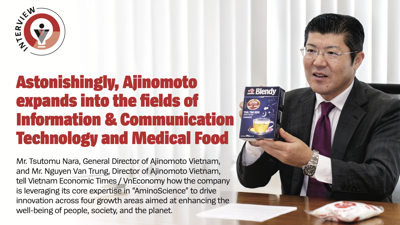
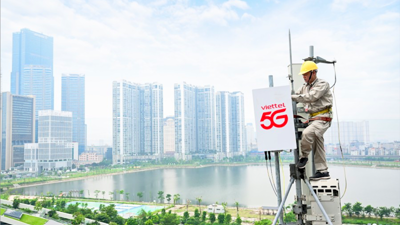
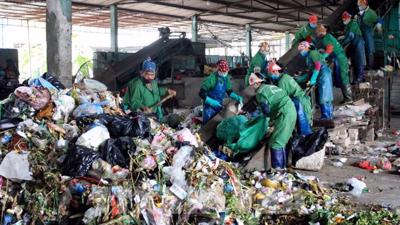
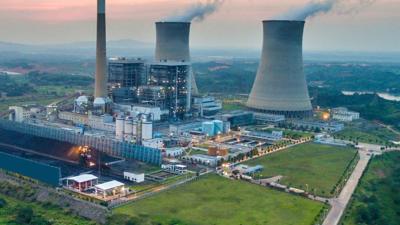
![[Interactive]: Economic overview - April 2025](https://media.vneconomy.vn/400x225/images/upload/2025/05/06/5a245778-67b1-4874-a8dc-21f8cfed62a6.png)